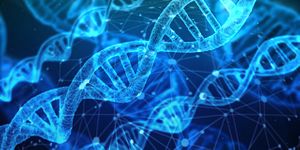On November 26, Jiankui He, an associate professor at South University of Science and Technology of China, announced to the world that his lab has created the world’s first genetically edited twin babies. He told the press that Lulu and Nana — the twin girls, whose genes were altered so as to resist possible future infection with HIV, the AIDS virus — were “healthily” born in China this month.
Although unconfirmed, his achievement has already triggered a heated controversy — mostly criticism — at home and abroad.
It is apparent that He, a scientist who studied at Rice and Stanford universities in the United States before returning to China, was determined to make his announcement a bombshell in the global scientific arena.
He chose to announce his experiment one day ahead of the Second International Summit on Human Genome Editing to be held in Hong Kong — a three-day summit co-hosted by the Academy of Sciences of Hong Kong, the Royal Society of London, the U.S. National Academy of Sciences, and the U.S. National Academy of Medicine. He gave an exclusive interview to the Associated Press, describing his work in detail. On November 25, his lab published a series of videos on YouTube, explaining his ethical principles regarding gene-editing technologies.
He told the AP that he had practiced editing mice, monkey, and human embryos in the lab for several years with the technology, CRISPR. It allows scientists to supply a needed gene or disable one on DNA.
According to the AP, by recruiting couples through a Beijing-based AIDS advocacy group called Baihualin, He’s team altered embryos for seven couples during fertility treatments.
“In all, 16 of 22 embryos were edited, and 11 embryos were used in six implant attempts before the twin pregnancy was achieved,” He said.
Notably, He’s research has not been published in a journal. Nor did He provide further information on the parents or embryos involved in the project. Several scientists who had reviewed materials that He provided to the AP said that “tests so far are insufficient to say the editing worked or to rule out harm.” So based on available information, there is no independent confirmation of He’s claim so far.
However, He’s claim has already triggered a backlash. A large number of scientists at home and abroad raised serious ethical concerns over He’s project. Many scientists condemned He for violating fundamental human ethics.
As the AP noted, the United States has banned sperm, egg, or embryo editing except for lab research because “the DNA changes can pass to future generations and it risks harming other genes.” China outlaws human cloning but not specifically gene editing.
He claimed that his project had received ethical approval from Shenzhen Harmonicare Women’s and Children’s Hospital. But according to multiple Chinese local media reports, Shenzhen Harmonicare Women’s and Children’s Hospital claimed that the hospital had nothing to do with the project. The “experts” whose signatures were on the ethical approval letter said their signatures were forged. The hospital itself was found to be a private entity without proper authority.
The real local authority — Shenzhen Health and Family Planning Commission — said it had never heard of this project before and has already launched an investigation. South University of Science and Technology of China declared that it didn’t know about the project at all and it condemned He’s project for “seriously violating academic ethics and academic norms.”
As for Jiankui He himself, he is reportedly a successful businessman besides being a scientist. He owns six biological technology companies and holds stakes in seven.

































